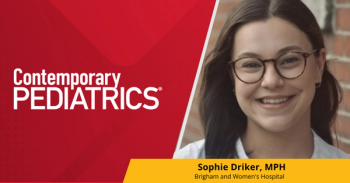
Cardiovascular risk in ADHD pharmacotherapy
Pharmacotherapy, namely the stimulant medications methylphenidate (MPH) and amphetamine (MAS) and the nonstimulant medication atomoxetine (Strattera), is the recommended treatment for attention-deficit/hyperactivity disorder (ADHD).
Key Points
Pharmacotherapy, namely the stimulant medications methylphenidate (MPH) and amphetamine (MAS) and the nonstimulant medication atomoxetine (Strattera), is the recommended treatment for attention-deficit/hyperactivity disorder (ADHD), one of the most prevalent mental health problems afflicting children worldwide.1 Although an extensive literature base supports the efficacy and tolerability of pharmacotherapy for children with ADHD, there are limitations to this knowledge base, and in recent years, researchers have raised reservations about the cardiovascular safety of these agents. In particular, researchers have raised concerns that these medications are associated with serious adverse events (AEs), including sudden death at usual therapeutic doses.2-4
The known cardiovascular profile of FDA-approved ADHD pharmacotherapy (primarily stimulants) includes small but statistically significant increases in blood pressure (+1-4 mmHg) and heart rate (+1-6 beats/min [bpm]) during treatment in healthy children with ADHD.5-10 Similar findings have been reported with stimulant treatment continued for up to 2 years and with robust daily doses of osmotic release oral system (OROS) MPH up to 1.5 mg/kg.5,11,12 However, no significant changes have been observed with ADHD medications in cardiac conduction, including PR, QRS, or QTc intervals.4,12,13 There are rare reports of outliers, including emergent electrocardiogram (ECG) findings in naturalistic ADHD treatment6 and in the setting of overdose/exposures.14
ADHD pharmacotherapy has also been associated with serious cardiovascular events in children and adults; at present, no causal relationship has been established for these rare events.15,16 A Public Health Advisory released by the Food and Drug Administration (FDA) in 2005 described complicating factors in sudden unexplained deaths in patients taking a stimulant-class medication; 5 of the 12 of the patients had underlying structural heart defects, such as abnormal arteries or valves or abnormally thickened walls.17 Several of the remaining cases included other variables, such as a family history of ventricular tachycardia or association of death with dehydration, near-drowning, rigorous exercise, heat exhaustion, or liver or metabolic (diabetes) disease. A recent FDA review demonstrated that the sudden death rate for children being prescribed stimulants was below the sudden death rate in the population as a whole.15,18,19
Using a case-based approach, this article addresses the clinical questions that remain on many physicians' and families' minds in caring for an individual child or teen and summarizes current consensus on the topic of cardiovascular risk in ADHD pharmacotherapy.
Newsletter
Access practical, evidence-based guidance to support better care for our youngest patients. Join our email list for the latest clinical updates.






